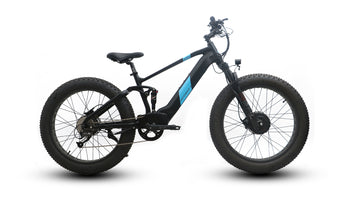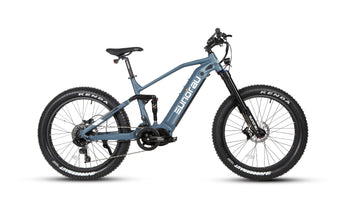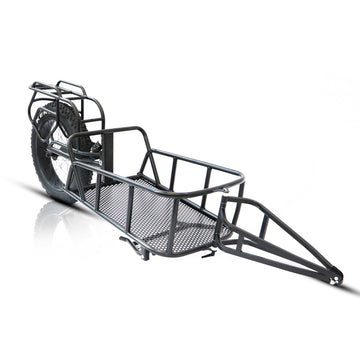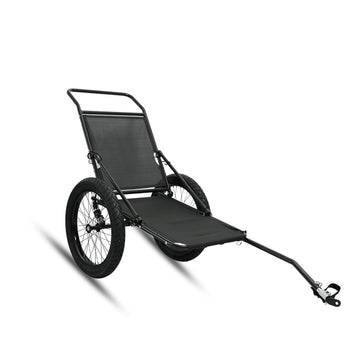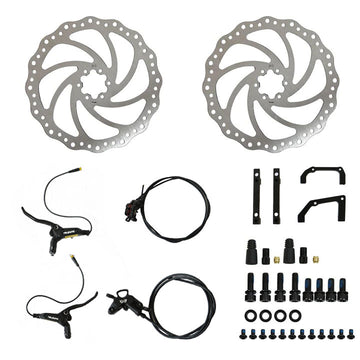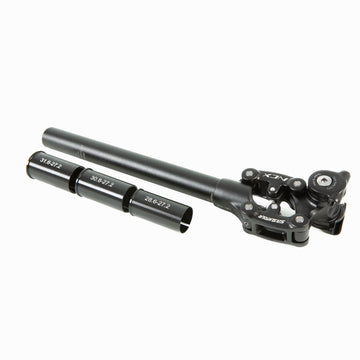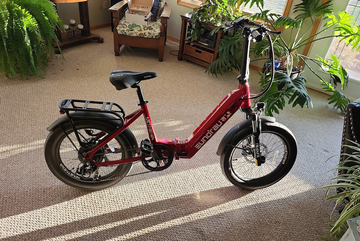
When it comes to eBikes, braking performance is just as crucial as motor power, battery range, and overall build quality. With increased speeds and heavier frames compared to traditional bicycles, eBikes demand reliable and responsive braking systems. The two most common types of disc brakes found on eBikes are hydraulic and mechanical. Each has its own advantages and drawbacks, and choosing the right one depends on factors such as riding style, terrain, and budget.
In this comprehensive guide, we'll explore the key differences between hydraulic and mechanical disc brakes, their pros and cons, and which option might be the best for your eBike riding needs.
Understanding Disc Brakes on eBikes
Disc brakes have largely replaced traditional rim brakes in modern eBikes due to their superior stopping power and reliability in various conditions. Unlike rim brakes that use friction on the wheel rim to slow down, disc brakes use a rotor mounted to the wheel hub. The brake caliper clamps down on the rotor, creating friction that slows the wheel.
Both hydraulic and mechanical disc brakes operate on this principle, but they differ in how the braking force is applied.
What Are Mechanical Disc Brakes?
Mechanical disc brakes use a steel cable to pull the calipers, pressing the brake pads against the rotor. The brake lever pulls the cable, which in turn activates the braking mechanism.

Pros of Mechanical Disc Brakes
-
Affordability – Mechanical disc brakes are typically more budget-friendly than their hydraulic counterparts, making them a good choice for entry-level eBikes or cost-conscious riders.
-
Easier Maintenance – Unlike hydraulic systems that require periodic fluid replacement and bleeding, mechanical disc brakes are simpler to maintain. Adjustments can be made using basic tools.
-
Compatibility – Mechanical brakes are often compatible with a wider range of brake levers, making them easier to upgrade or replace without swapping out an entire braking system.
-
No Risk of Fluid Leaks – Since mechanical disc brakes use cables rather than hydraulic fluid, there's no chance of leaks that could compromise braking performance.
Cons of Mechanical Disc Brakes
-
Less Stopping Power – Mechanical disc brakes generally require more force at the brake lever to achieve the same stopping power as hydraulic brakes.
-
More Frequent Adjustments – Over time, brake cables stretch and wear down, requiring regular tension adjustments to maintain optimal performance.
-
Inconsistent Performance – Cable-actuated brakes can suffer from friction buildup, especially in wet or muddy conditions, which can reduce braking efficiency.
What Are Hydraulic Disc Brakes?
Hydraulic disc brakes use fluid-filled brake lines to transfer force from the brake lever to the calipers. When you squeeze the brake lever, hydraulic fluid pushes the caliper pistons, which then clamp the brake pads onto the rotor.

Pros of Hydraulic Disc Brakes
-
Superior Stopping Power – Hydraulic systems generate higher and more consistent braking force with less effort at the lever.
-
Self-Adjusting – Hydraulic brakes automatically adjust as brake pads wear down, reducing the need for manual tuning.
-
Smooth and Responsive Braking – The fluid-based system provides a smoother feel and more precise control, making it ideal for high-speed eBike riding.
-
Better Performance in All Conditions – Hydraulic brakes maintain reliable braking power in wet, muddy, or steep downhill conditions, making them a great choice for off-road and high-performance eBikes.
Cons of Hydraulic Disc Brakes
-
Higher Cost – Hydraulic braking systems are more expensive than mechanical ones, both in initial purchase and potential repairs.
-
Complex Maintenance – Bleeding the hydraulic fluid system requires specific tools and expertise, making at-home maintenance more challenging.
-
Potential for Leaks – Though rare, hydraulic fluid leaks can render the braking system ineffective until repaired.

Which Brake System is Best for Your eBike?
The best braking system for your eBike depends on several factors, including riding style, terrain, and budget. Here are some key considerations:
1. Riding Terrain
-
If you primarily ride on flat city streets and use your eBike for casual commuting, mechanical disc brakes may be sufficient.
-
If you frequently ride on hilly terrain or off-road trails, hydraulic disc brakes provide the extra stopping power and responsiveness needed for safety.
2. Ebike Speed and Weight
-
Faster, more powerful eBikes benefit greatly from hydraulic brakes due to their ability to provide strong, consistent braking force.
-
Heavier eBikes, especially those designed for cargo or two-person riding, should have hydraulic brakes to ensure safe stopping distances.
3. Maintenance Preferences
-
If you prefer a low-maintenance option that you can adjust yourself, mechanical disc brakes are easier to work with.
-
If you want a system that requires minimal manual adjustments but might need professional servicing, hydraulic brakes are the way to go.
4. Budget
-
Mechanical disc brakes are more affordable both in initial cost and long-term maintenance.
-
If budget isn’t a primary concern and you want the best braking performance, hydraulic disc brakes are worth the investment.
Eunorau’s Take on Braking Systems
At Eunorau, we design our eBikes to meet the needs of a variety of riders. Our high-performance models, such as the FAT-HS and SPECTER-S, come equipped with hydraulic disc brakes to provide the best control and stopping power in rugged conditions. Meanwhile, some of our more budget-friendly commuter and city eBikes may utilize mechanical disc brakes for cost-effectiveness while still delivering reliable performance.

We believe that safety should never be compromised, which is why we ensure that every eBike we offer has a braking system suited to its intended use. Whether you’re tackling steep trails or commuting through busy streets, Eunorau eBikes are designed to keep you safe and in control.
Which Should You Choose?
If you’re an eBike rider looking for reliability on a budget, mechanical disc brakes may be the right choice for you. However, if you want the best possible stopping power, smoothness, and control, hydraulic disc brakes are the superior option.
No matter which type of braking system you choose, regular maintenance and inspections are crucial to keeping your eBike safe and responsive. Whether you’re riding through city streets or mountain trails, having the right brakes will make all the difference in your riding experience.
At Eunorau, we are committed to providing high-quality eBikes that meet the needs of all riders. If you're unsure which braking system is best for you, feel free to reach out to our team, and we’ll help you find the perfect eBike for your adventures.
